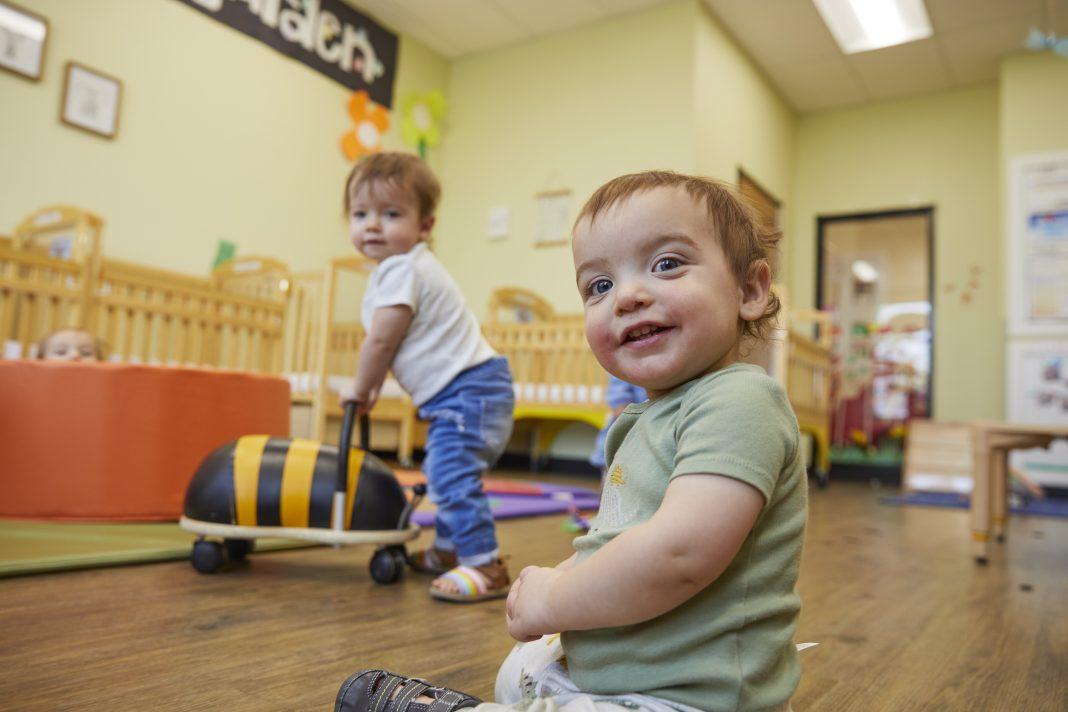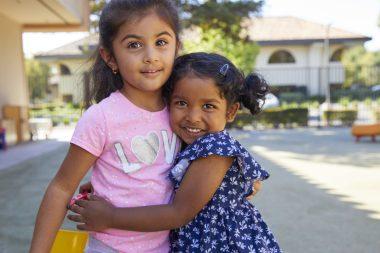As parents we often find ourselves reminding and encouraging our children to “be kind” or “be friendly” with their peers. While we lead with the best of intentions and know that we are trying to raise caring children, nearly all of us will worry about whether our child is kind to others when adults are not around.
In most cases, children are generally kind, but it’s possible they might internalize societal messages that equate kindness to weakness. With a little help, children can develop a sense of empathy, which can help them have positive interactions with others, whether they’re on the playground, in the classroom or at home.
As parents we can also consider these three ways parents can encourage empathy:
- Try a new twist on “what did you do today?” Find a consistent time during the day – at pick up, during dinner or before bedtime – to ask your child, “How did you help someone today?” or “How were you kind to someone today?” Be sure to offer your own examples from your day, too. This helps your child understand the connection between his or her actions and kindness to others. It also opens the conversation for you and your child to discuss missed opportunities to show kindness, how you could both do better next time and how you and your child could show kindness in the future.
- Intentionally call out acts of kindness. Go beyond a simple “thank you” and be specific about why the action was kind: “That was so kind of you to clear the table after dinner. Your help made cleanup go faster. I appreciate that.” Don’t forget to use this same technique with other family members, too. Ask your child what compliments he or she likes to hear and encourage him or her to do the same for others.
This teaches empathy and encourages children to treat others the way they want to be treated.
3. Build a toolbox of responses for tough situations. First, help your child build emotional literacy skills by helping him or her learn to identify and name feelings. Then work together to identify appropriate expressions of those feelings.
Some healthy ways to react to emotional moments are:
•find a quiet place to calm down
•talk with a trusted adult like a teacher,
•squeeze fists into a ball
• name the feeling: “I’m so angry right now!”
“We often encourage children to be friends with everyone, but that’s unrealistic,” said Carter Peters from KinderCare’s Inclusion Services team. “We don’t have to be friends with everyone, but we do need to be friendly with everyone. When children learn to respect everyone, even those they don’t like, they help create a kinder, more welcoming community.”
The ability to think and react rationally diminishes when angry, so practicing potential responses while in a calm, low-stress state is essential to helping children learn to apply those responses when they’re upset. Having this toolbox of responses to rely on also gives children the autonomy of deciding how best to respond to an emotionally difficult situation, which can lead to a sense of empowerment when they realize they chose to act kindly despite their emotions.
For more tips about how to raise kind and caring children, visit kindercare.com. For information about the new International Parkway KinderCare center opening soon in Lake Mary, visit their website or call 833-90-LEARN. Whether you live in the area or commute to a job nearby, KinderCare has you covered with safe, affordable, convenient daycare solutions to suit whatever makes your family unique.



















